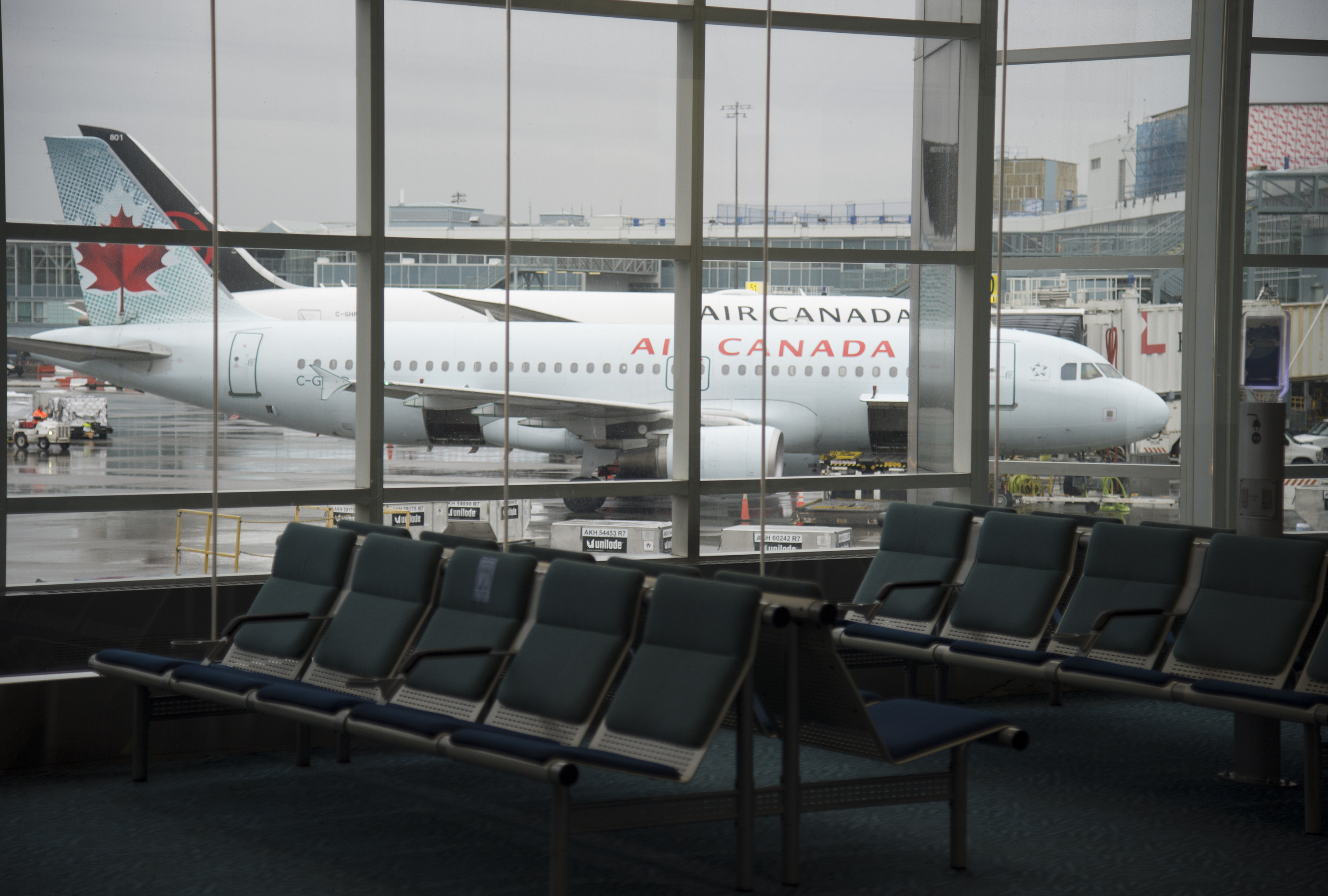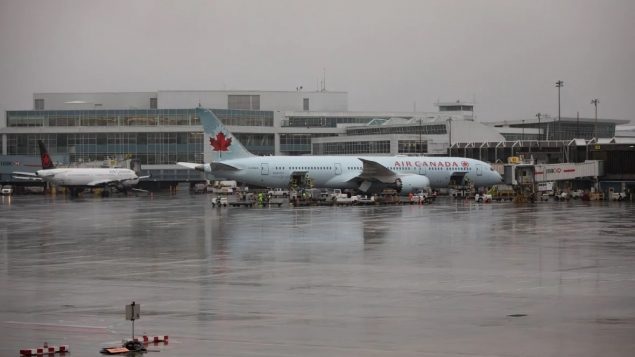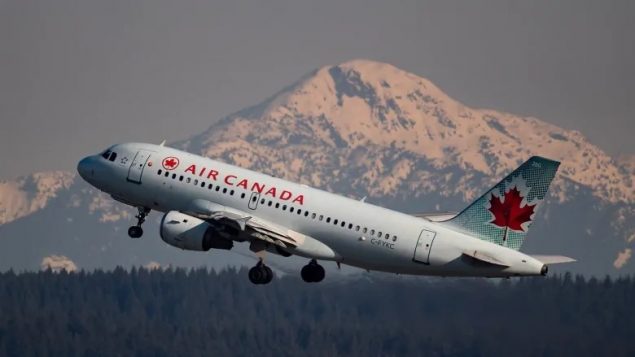After a year that saw it shoulder staggering financial losses and lay off more than half of its workers, Air Canada, battered and bruised by the COVID-19 pandemic, and the federal government are charting a new course.
At a news conference in Ottawa on Monday, Finance Minister Chrystia Freeland and Transport Minister Omar Alghabra announced that Ottawa will extend the company a variety of low-interest loans worth up to $5.4 billion and take an equity stake in the company by purchasing $500 million in stocks.
Under the agreement, Air Canada must refund passengers whose flights were cancelled due to COVID-19, cap executive compensation at $1 million a year and restore service to regional airports.

A plane is seen through the window on the tarmac of Vancouver International Airport as the waiting room is empty Tuesday, June 9, 2020. Under the new agreement between Ottawa and Air Canada, the airline must refund passengers whose flights were cancelled due to COVID-19, cap executive compensation at $1 million and restore service to regional airports. (THE CANADIAN PRESS/Jonathan Hayward)
As well, the company must maintain the current level of workforce, respect collective bargaining agreements and protect workers’ pensions.
“This is a good and fair deal for Canada and Canadians,” she said.
According to the International Air Transport Association, global travel demand hit its lowest level ever in 2020–falling by 65.9 per cent compared to 2019.
Air Canada was not immune.

Air Canada planes are seen docked under dark and dreary skies at Vancouver International Airport on March 2, 2020–a year that saw the country’s biggest airline lose billions of dollars and lay off thousands of workers. (CBC/Maggie MacPherson)
The company–and its workers–took a financial beating.
In February, when it released its 2020 fourth quarter financial report, the figures were worse than expected: a loss of $1.16 billion.
Former Air Canada president and CEO Calin Rovinescu called 2020 the “bleakest year in the history of commercial aviation.”
If the financial losses were severe, so were the job losses.
Air Canada currently has 14,859 active Canadian employees compared to 38,000 before the pandemic struck
Last May, it reduced staff by more than 20,000.
This January, it cut another 1,700 employees.
In February, it shut down its low-cost Rouge subsidiary, resulting in 80 lost jobs, and later that month it suspended 17 more routes and cut 1,500 more jobs.

Air Canada suspended flights on it low-cost Rouge subsidiary in February, costing about 80 people their jobs. (CBC News)
About $1.4 billion under Monday’s agreement, which follows months of negotiations, is earmarked to help reimburse thousands of customers who paid for tickets but remained grounded at the end of 2020.
Customers who purchased non-refundable fares but did not travel due to COVID-19 since February 2020 will be eligible to receive refunds as of today.
As well, anyone who bought a ticket that they or the airline cancelled before the government announced travel restrictions on March 22, 2020 will be eligible for a refund.

About $1.4 billion under Monday’s agreement, which follows months of negotiations, is earmarked to help reimburse the thousands of customers who paid for tickets but remained grounded at the end of 2020. (THE CANADIAN PRESS/Graham Hughes)
And those who purchased tickets after that date but had their flight cancelled by the airline will also be eligible.
In January, Air Canada and three other domestic carriers–Sunwing, WestJet, and Air Transat–agreed to the federal government’s request to suspend air service to Mexico and Carribean destinations until April 30.
That announcement came the day Prime Minister Justin Trudeau announced that travellers returning to Canada would have to quarantine in hotels at their own expense.
Air Canada has already collected $554 million from the Canada Emergency Wage Subsidy in 2020 and says it will continue to access the program in 2021.
With files from CBC News (Ryan Patrick Jones), The Canadian Press, Bloomberg, RCI,







For reasons beyond our control, and for an undetermined period of time, our comment section is now closed. However, our social networks remain open to your contributions.